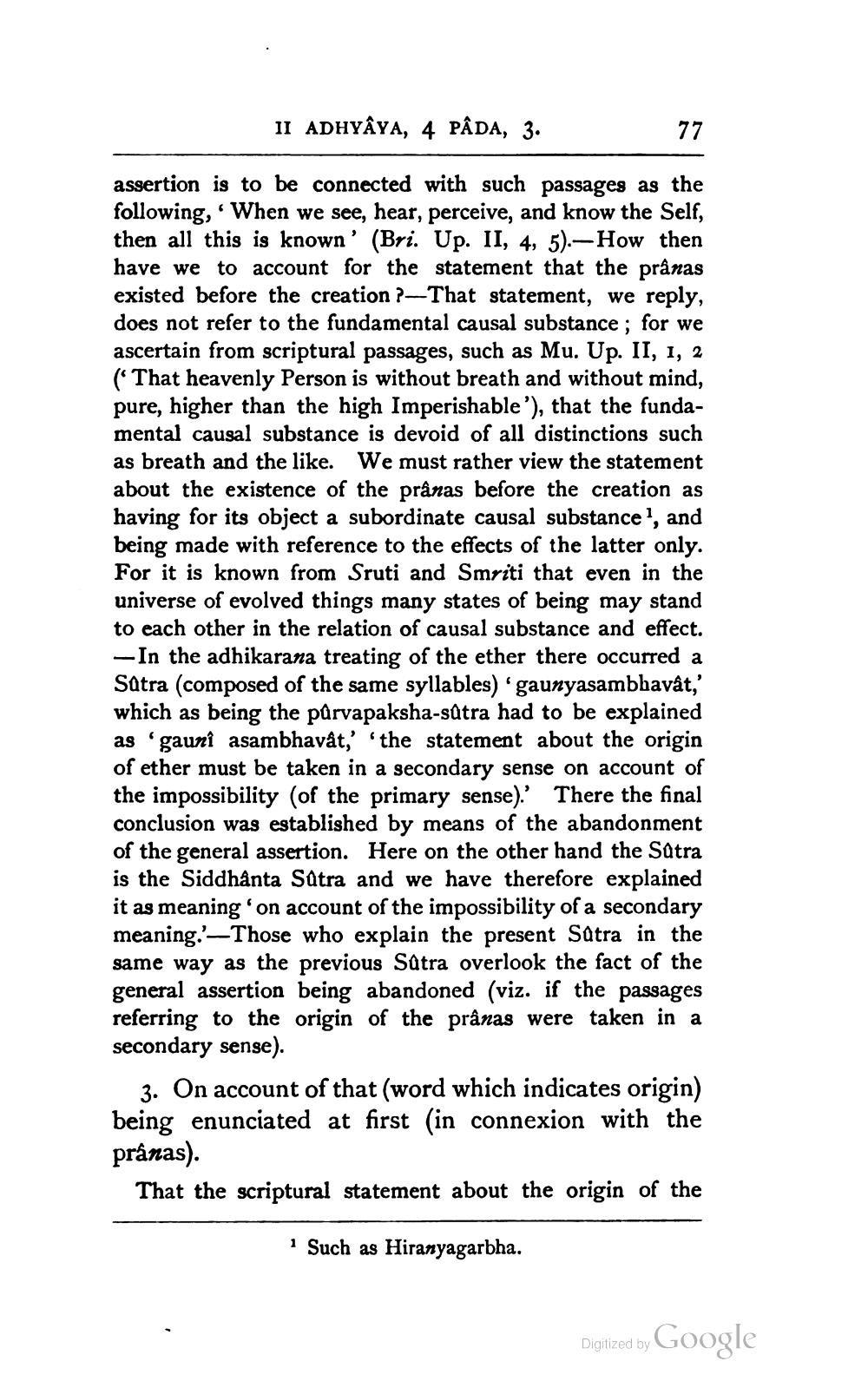________________
II ADHYAYA, 4 PÂDA, 3.
77
assertion is to be connected with such passages as the following, 'When we see, hear, perceive, and know the Self, then all this is known' (Bri. Up. II, 4, 5).-How then have we to account for the statement that the pranas existed before the creation ?-That statement, we reply, does not refer to the fundamental causal substance; for we ascertain from scriptural passages, such as Mu. Up. II, 1, 2 (That heavenly Person is without breath and without mind, pure, higher than the high Imperishable'), that the fundamental causal substance is devoid of all distinctions such as breath and the like. We must rather view the statement about the existence of the prânas before the creation as having for its object a subordinate causal substance1, and being made with reference to the effects of the latter only. For it is known from Sruti and Smriti that even in the universe of evolved things many states of being may stand to each other in the relation of causal substance and effect. -In the adhikarana treating of the ether there occurred a Sutra (composed of the same syllables) 'gaunyasambhavât,' which as being the purvapaksha-sûtra had to be explained as 'gauni asambhavât,' 'the statement about the origin of ether must be taken in a secondary sense on account of the impossibility (of the primary sense).' There the final conclusion was established by means of the abandonment of the general assertion. Here on the other hand the Sûtra is the Siddhânta Sûtra and we have therefore explained it as meaning 'on account of the impossibility of a secondary meaning.'-Those who explain the present Sûtra in the same way as the previous Sûtra overlook the fact of the general assertion being abandoned (viz. if the passages referring to the origin of the prâzas were taken in a secondary sense).
3. On account of that (word which indicates origin) being enunciated at first (in connexion with the pranas).
That the scriptural statement about the origin of the
1 Such as Hiranyagarbha.
Google
Digitized by




